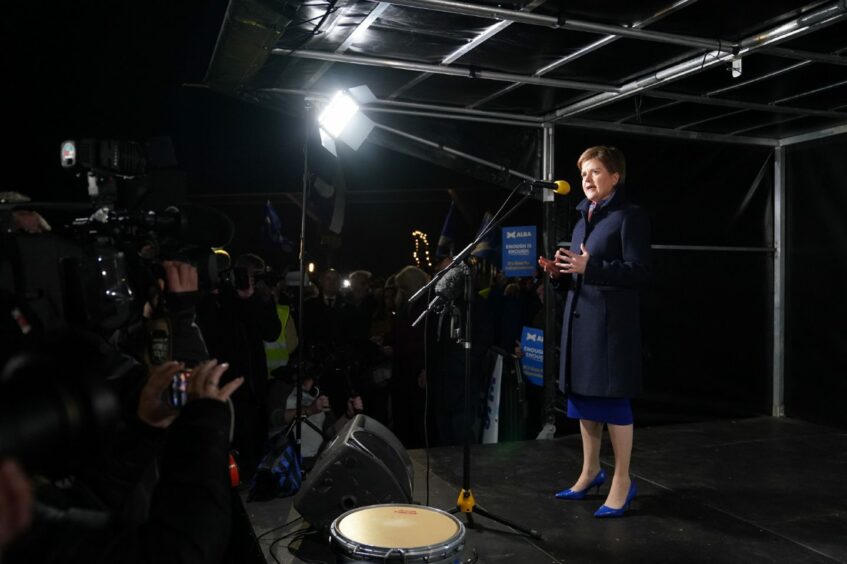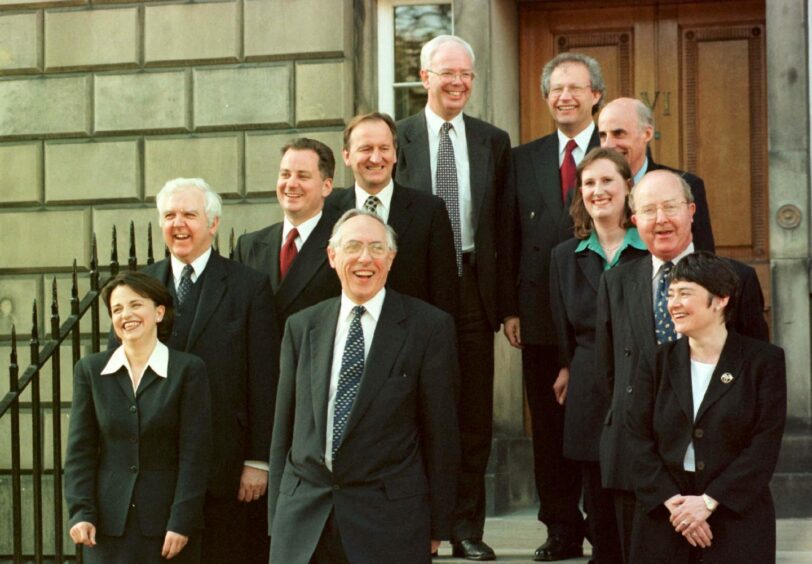Writing for The Courier last week Kevin Pringle likened the Scottish nationalist project to “a contest of endurance”.
I cannot be the only person who read that and thought: “Haven’t we already endured enough?”
Endurance is also, according to Kevin, how “we won a Scottish Parliament in the 1990s”.
An interesting use of the word “we” there.
My recollection of the 1990s was that “we” (Labour, Liberal Democrats, unions, councils and civic Scotland) did the hard yards in the Constitutional Convention while the nationalists stayed outside, telling us it was all a waste of time. The only way to be free of the yoke of (English) Conservatism was by going for independence.

If any of that sounds familiar then it is probably because it is.
For decades, nationalists have told us that the only cure for any ill was independence.
All the focus is on how they can “win” – and never a thought on whether their victory brings any moral or practical good to those they play over.
The process is what matters – playing the game.
What could SNP achieve if independence wasn’t the focus?
It is why the response to last week’s Supreme Court ruling has been less about humility and outreach to the broad spectrum of views in our community, and more about jumping to weaponise the rule of law and basic principles of liberal democracy to score a few more points on the board.
The tactics of the game are simple.
Better to be denied by the oppressors – thus proving the oppression – than to have to actually address the substance of economic harm and social division, borders and currency costs.
It is all grist to the mill in the grievance machine.
Never mind that there is so much else that ministers and civil servants could be working on rather than legal ploys and border drawing.
We are all supposed to be in awe of the mental jujitsu that allows the SNP and the First Minister to stretch out this long, unproductive game for another month, another year.
It doesn’t matter what the debate is about, they always find a route to bring it back to independence – call it six degrees of separation
Eight years on from the referendum Scots remain as divided on the issue as they have ever been.
We have seen years of energy and endurance spent by bright people in the cause of something so morally empty, merely to maintain a deadlock.
Imagine what else we might have achieved with all that lost time.
Scottish Parliament was won by parties pulling together
There could be lessons for the SNP to learn from those of us who (led by the likes of Donald Dewar and Jim Wallace, and sniped at every step of the way by Alex Salmond) won the Scottish Parliament in the 1990s.
We did it by building a positive case and bringing people together – not pushing them into ever deeper silos.
By the time of the referendum in 1997, the view of the overwhelming majority was clear.
The purpose of the referendum then was to confirm the legislation that Parliament had passed.
The real difference, of course, is that the case for setting up a Scottish Parliament was rooted in better governance offering better outcomes to Scots.
The case for independence, on the other hand, offers the same model of government just with poorer outcomes.
SNP independence game has us all going round in circles
If we really have to find a game as a metaphor for the independence debate then rather than look to Japan for Endurance, we might find one closer to home.
1/ While disappointed by it I respect ruling of @UKSupremeCourt – it doesn't make law, only interprets it.
A law that doesn't allow Scotland to choose our own future without Westminster consent exposes as myth any notion of the UK as a voluntary partnership & makes case for Indy— Nicola Sturgeon (@NicolaSturgeon) November 23, 2022
On BBC Radio Four’s I’m Sorry I Haven’t A Clue, the panellists play a game called Mornington Crescent.
The winner is the person who, going around the London Underground by a circuitous route, gets back to Mornington Crescent.
That is how it feels listening these days to the SNP.
It doesn’t matter what the debate is about, they always find a route to bring it back to independence – call it six degrees of separation.
The problem is that this winter we face some colossal challenges that make constitutional games look all the more petty.
People across Scotland are worried about how to pay their rent or mortgage, feed their families and heat their homes.
People across England, Wales and Northern Ireland share the same worries.
The nationalists focus on process rather than outcomes, because under their stewardship the outcomes for health, education, transport and policing get steadily worse.
If this is a contest of endurance then it is one in which Scotland is stuck running in circles.
At a time like this, facing challenges like these, couldn’t we have a break from the games?
The Rt. Hon. Alistair Carmichael is Liberal Democrat MP for Orkney and Shetland














Conversation